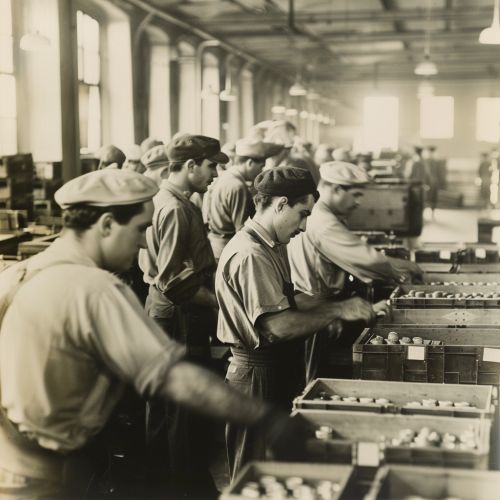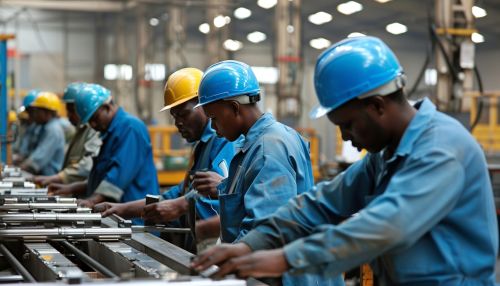Working Class
Definition and Historical Context
The term "working class" refers to a social group consisting of people who are employed for wages, especially in manual or industrial work. The working class includes both skilled and unskilled labor, across a broad spectrum of employment sectors. The working class is typically contrasted with the bourgeois, who own the means of production and employ the working class.
The concept of a working class emerged during the Industrial Revolution, a period of rapid industrialization from the mid-18th to mid-19th century. Prior to this period, society was largely agrarian and the majority of people lived and worked on farms. The Industrial Revolution led to the development of factories and large-scale industrial production, which required a large workforce. This workforce, often living in urban areas, formed the basis of the working class.


Working Class in Different Societies
The characteristics and conditions of the working class can vary significantly between different societies and economic systems. In capitalist societies, the working class is typically defined by its relationship to the means of production, as workers do not own the means of production and must sell their labor to survive. In socialist and communist societies, the working class is often considered the revolutionary class, as it is seen as the most capable of overthrowing the bourgeoisie and establishing a society without class distinctions.
In many societies, the working class is further divided into different subgroups, such as the "blue-collar" workers, who perform manual labor, and the "white-collar" workers, who perform non-manual labor. These distinctions often reflect differences in income, education, and social status within the working class.
Working Class Culture and Politics
Working class culture and politics are shaped by the shared experiences and conditions of working class people. These can include factors such as working conditions, wages, job security, and access to education and healthcare. Working class culture often emphasizes values such as solidarity, community, and collective action.
Working class politics have historically been associated with left-wing ideologies and political movements, such as socialism and trade unionism. These movements seek to improve the conditions of the working class and challenge the power of the bourgeoisie. However, working class politics can also be diverse and complex, reflecting the diverse experiences and perspectives within the working class.
Challenges Facing the Working Class
The working class faces numerous challenges in contemporary society. These include economic inequality, job insecurity, and the impact of globalization and technological change on employment. Many working class jobs have been outsourced to countries with lower labor costs, or replaced by automation. These trends have led to a decline in traditional working class jobs and increased economic insecurity for many working class people.
In addition, the working class often faces social and cultural challenges, such as discrimination, stigma, and lack of representation in politics and media. These challenges can further exacerbate the economic and social inequalities faced by the working class.
